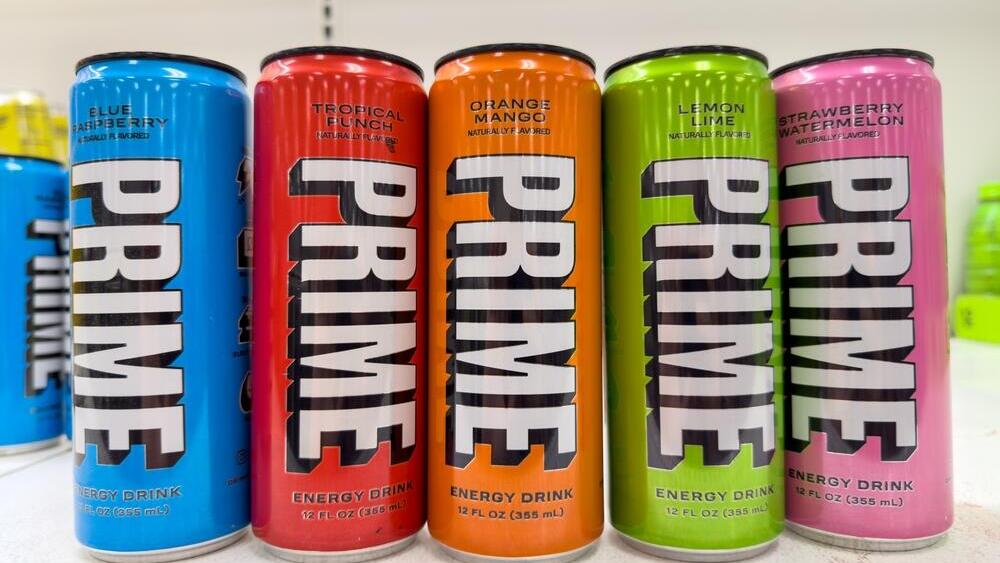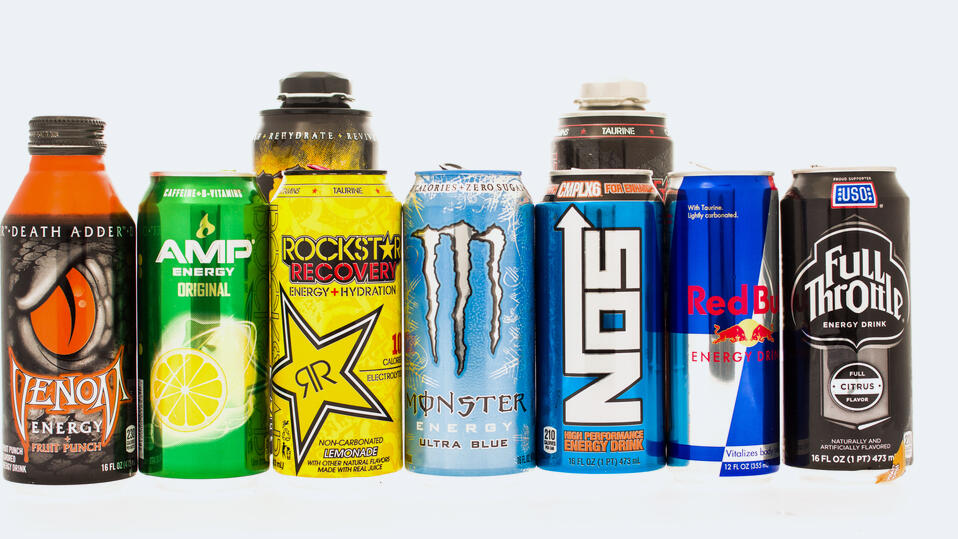Getting your Trinity Audio player ready...
If you have young children, you've probably already heard of PRIME energy drinks, and you may have even been asked to bring some home. It's become a popular TikTok trend with kids, but health experts from around the world believe that there are health risks associated with these drinks.
Read more:
Here are some points to take into account before allowing children and teenagers to consume the product, or perhaps this is one trend you better skip.
What is in PRIME energy drinks?
PRIME energy drinks, in contrast to sports drinks containing carbohydrates, minerals, vitamins and electrolytes, also contain high levels of caffeine.
How much caffeine does it contain compared to other drinks?
According to the US Food and Drug Administration, a carbonated beverage with a volume of 300 ml contains 30 mg-40 mg of caffeine, a cup of tea (220 ml) contains 30 mg -50 mg of caffeine, and a cup of coffee (220 ml) contains 80 mg-150 mg of caffeine. The exact amount of caffeine in these beverages depends on the type of beans or tea leaves used and their roasting process.
As for energy drinks, a can of Red Bull contains 80 mg of caffeine, a 500 ml can of Monster contains 160 mg of caffeine, and PRIME contains 200 mg of caffeine – five to seven times more caffeine than what is found in regular carbonated drinks.
What you need to be concerned about
The concern lies in research regarding the link between caffeine and the risk of certain diseases, which has primarily been studied in adults. It has been found that some individuals react differently to caffeine. Some metabolize it quickly and, as in the case of coffee consumption, may benefit from antioxidants and other beneficial compounds found in the drink.
However, the problem lies with slow metabolizers who are at risk of developing certain diseases even from consuming three cups of coffee or fewer a day. Each PRIME drink contains the equivalent of three cups of coffee, which might expose children and teenagers to caffeine-related health risks.
It is essential to note that there are limited studies on the effects of caffeine consumption on children and teenagers. As a result, pediatricians advise against giving caffeine to children under the age of 12 and limiting its consumption to 100 mg per day for adolescents and teenagers ages 12 to 18.
What are the dangers of excessive caffeine consumption in children and adolescents?
The dangers of excessive caffeine consumption among children and adolescents include sleep disorders, digestive issues such as diarrhea, anxiety (especially for those with existing anxiety disorders) and interference with medication absorption.
Caffeine is particularly dangerous for children with undiagnosed heart problems, as it can negatively affect the nervous and cardiovascular systems, which are still developing during childhood and adolescence. Children who consume high amounts of caffeine may also experience headaches and, in rare cases, caffeine poisoning leading to death.
How can you convince your kids to stay away from it?
Talk to them. This is the first step that can be taken to help children and teenagers make healthy choices and understand the potential risks associated with these beverages. It's essential to explain the differences between sports drinks and energy drinks. The role of sports drinks is to replenish nutrients lost during strenuous physical activity, while energy drinks contain stimulants like caffeine and guarana in addition to small amounts of nutrients.
The writer is a dietitian at Schneider Children's Medical Center



